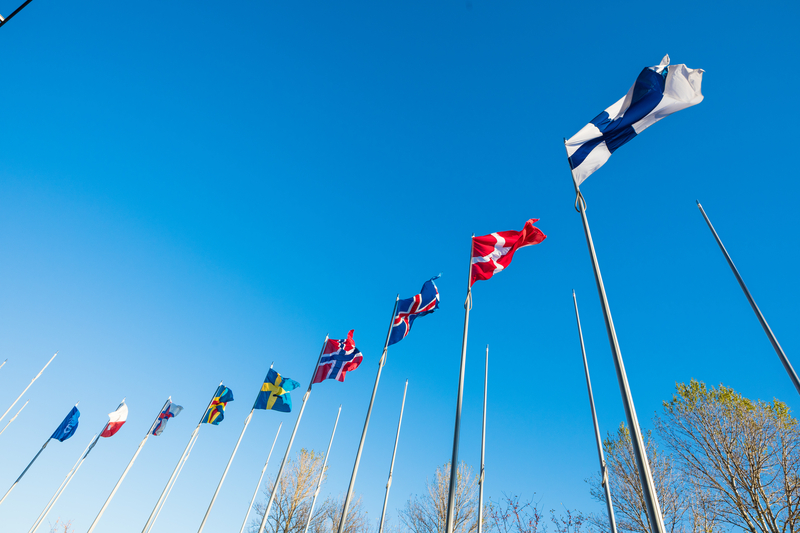THE SECRETARY GENERAL’S BLOG: What does the price of a loaf of bread get you?

Now and again, somebody asks me what people get out of Nordic co-operation. It costs everybody in the Nordic Region DKK 40.00 a year after all – roughly the cost of a loaf of bread. Do we get value for money? My answer is that Nordic co-operation generates added value worth significantly more than DKK 40.00 for individuals, companies and society as a whole.
Nordic co-operation improves health and save lives. The Keyhole makes it easier for consumers to choose healthier food with less sugar and salt, more whole grain and fibres and less (or healthier) fat. Selecting products featuring the Keyhole increases your chances of a healthy life. Scandiatransplant, which celebrates its 50th anniversary this year, arranges exchanges of organs between the Nordic countries. It has now been extended to cover Estonia as well. The Nordic Council of Ministers has funded the programme from time to time ever since it was set up and will help mark the anniversary.
The people of the Nordic countries take advantage of cross-border freedom of movement far more than the populations of EU member states. Since the 1950s, when the Nordic governments established a joint labour market and introduced a passport union, millions have relocated to another Nordic country to work or study. This freedom of movement has not just arisen out of the blue.
The people of the Nordic countries take advantage of cross-border freedom of movement far more than the populations of EU member states. Since the 1950s, when the Nordic governments established a joint labour market and introduced a passport union, millions have relocated to another Nordic country to work or study. This freedom of movement has not just arisen out of the blue. Special agreements have helped, for example, the agreement on access to higher education, which lets students study and take exams in all of the Nordic countries. Nordic co-operation enhances freedom of movement in other ways as well. At the moment, the countries are working together on an electronic ID system, which will soon make it easier for people and companies to operate digitally across borders using their national IDs. Nordic co-operation also funds exchange programmes, often including the Baltic states as well. Thousands of people take part in the various mobility programmes every year.
Nordic co-operation is involved in several key areas of the work to build an environmentally sustainable world. For example, the countries work closely together on compliance with the Paris Agreement, the Biodiversity Convention, the Air Convention, the EU Chemicals Directive and other important environmental and climate directives. I am convinced that without Nordic co-operation, the world would have made less progress toward solving the environmental challenges it faces. But it is not just by working together on international conventions that the Nordic countries make a difference: the impact of co-operation is visible in shops too. The official Nordic Swan environment label (The Swan) was set up in 1989 when the Nordic Council of Ministers decided to help consumers make good environmental choices. It began with paper and batteries, but the label now appears on more than ten thousand products and services. The Nordic countries also work closely together on energy, providing stable, secure and competitive supplies and facilitating the transition to greener energy. In other words, Nordic co-operation has a hand in it when you put on your lights or coffee machine. Probably the best example of how Nordic co-operation promotes long-term sustainability is the Nordic Genetic Resource Center (NordGen), which is perhaps best known for running the Svalbard Global Seed Vault, humanity’s “back-up drive” of the worst should happen.
Nordic co-operation also puts money in the national coffers. A decade ago, the Nordic finance ministers entered into information exchange agreements with some 40 countries that used to be tax havens where people transferred assets to avoid paying tax at home. The Swedish Tax Agency calculates that for Sweden alone this has generated tax income of SEK 1.7 billion. Norway reports similar figures.
Nordic co-operation also generates added value for business and industry. Let me give you an example. To boost newly started Nordic companies’ opportunities to export and attract talent and capital, joint Nordic export outposts, called Nordic Innovation Houses, have been set up around the world. The first one opened in Silicon Valley in 2015 and has been such a huge success that it no longer requires funding. Other followed in New York, Singapore and, most recently, in Hong Kong in November 2018.
Co-operation also draws attention to the Nordic Region in other ways that benefit the countries. The Nordic brand is strong and is used more and more often by the countries for joint profiling and marketing initiatives. For example, Nordic Matters was probably the biggest international event promoting Nordic culture and ideas ever. Hosted by the South Bank Center in London throughout 2017, it attracted more than three million visitors who encountered Nordic culture, values and social models.
Nordic co-operation also helps improve life for everybody who lives here. For example, NORDBUK promotes positive inclusion of vulnerable children and young people in the Nordic Region.
The examples above are just some of the many ways in which Nordic co-operation generates added value and delivers important results. It isn’t always just about making us better off financially – even though it does – it’s also about enriching society and individuals as well. The value may be impossible to quantify in any particular currency, but it is definitely higher than the cost of a loaf of bread. Without Nordic co-operation, we would all be poorer in many different ways.